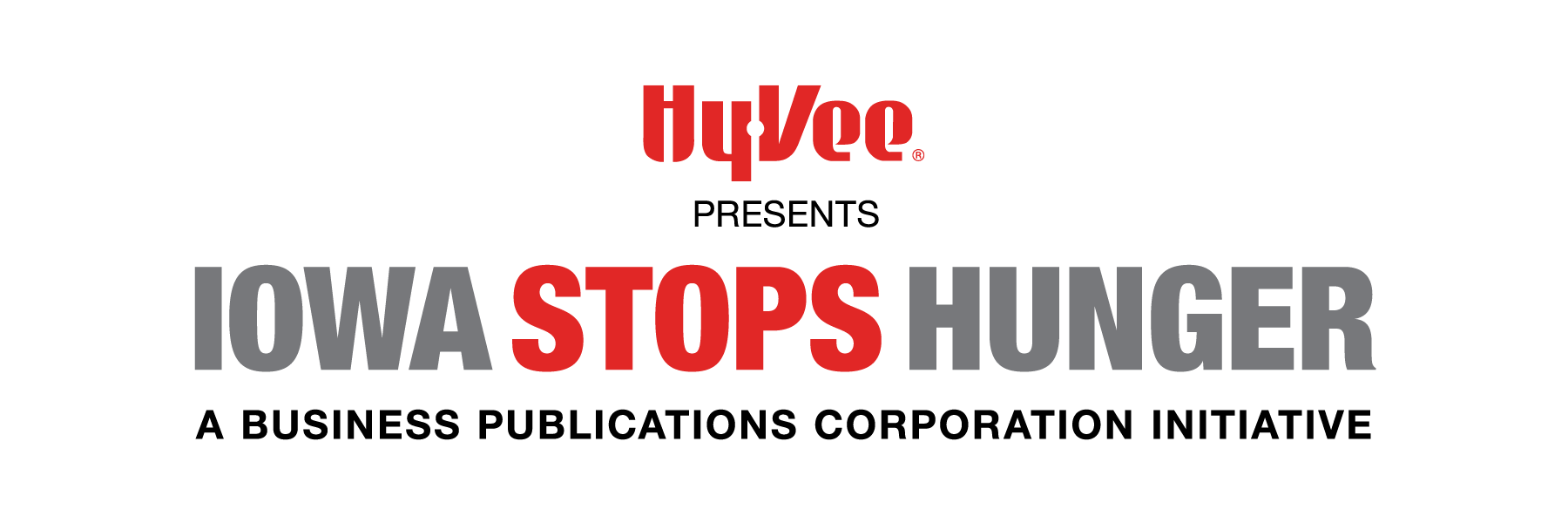Feeding Iowans Task force to scale back its work as report details efforts to combat food insecurity in Iowa
A year after it was created to help fight soaring levels of food insecurity brought on by the coronavirus pandemic, the work of the Feeding Iowans Task Force will be scaled back.
Gov. Kim Reynolds and Lt. Gov. Adam Gregg made the announcement on May 12 at the Food Bank of Iowa, where they also touted the achievements made by the task force over the past year that were detailed in a 34-page report that was released at a news conference.
Gregg, who was charged with leading the work of the task force, emphasized in making the announcement that food insecurity and hunger in Iowa have not been solved “for evermore.” He said the state would “use the relationships we’ve built and the connections we’ve made to continue this conversation in other forums.”
He said that could include the Social Determinants of Health Working Group that is administered by the Department of Human Services, which “will look at hunger through the broader lens of the health of Iowans.”
Another example Gregg gave was folding some task force members into a more formal role within emergency response planning through the Department of Homeland Security and Emergency Management.
“While [the task force’s] work has largely come to a close, it will continue to address issues related to food insecurity in a variety of emergency response situations in our state going forward,” Reynolds said.
Linda Gorkow, executive director of the Food Bank Association of Iowa and a task force member, spoke during the news conference, where she said food insecurity remains high in Iowa with 407,000 food-insecure Iowans.
Gorkow said food insecurity remains about 50% higher than it was before the pandemic, which resulted in 1 in 7 adult Iowans and 1 in 5 Iowa children being food insecure.
She characterized COVID-19 as a complex crisis for the food bank and food pantry systems, which were forced to shift quickly from in-person operations where people could choose the items they wanted to drive-by pickup locations where prepared boxes were distributed.
The number of volunteers was drastically reduced. Serious disruptions to the supply chain made “food acquisition nearly impossible,” and food donations were cut in half, she said.
Calls to the Food Bank Association hotline soared as more people filled out applications for food assistance, Gorkow said.
Despite the challenges, the state’s food bank system “responded admirably, serving 99 counties efficiently, effectively and safely,” she said.
More than 60 million meals were served in 2020, nearly double the number served in 2019, Gorkow said.
“We made sure food was available to Iowans,” she said.
Gorkow said the effects of COVID-19 on food insecurity will continue, but it has brought into focus the lesson that food is essential to living a quality life.
Gregg and other task force members highlighted several areas of the report, which included:
$12.3 million was allocated to the task force through the coronavirus relief fund.
1.75 million servings of protein were distributed through programs such as Pass the Pork, Beef up Iowa and Turkey to Table.
Gleaning programs resulted in 25,000 pounds of fresh produce harvested and distributed.
Double Up Food Bucks expanded to 100 new sites in 76 counties to help more than 75,000 Iowans buy fresh produce.
1.5 million meals were served to more than 190,000 older Iowans.
102 food pantries received grants to add refrigeration so they could store more meat, eggs and dairy.
Included in the $12.3 million allocated to the task force from CARES Act funding is $5.5 million that has not been previously announced that will be allocated to support local food pantries, Gregg said.
He commended the task force, the state’s food banks and pantries and other partner organizations for their work to help tackle the challenges facing the state during the pandemic.
“We stepped up to meet the historical increased demand that we faced,” he said.
Reynolds said the task force’s work made a difference during the state’s pandemic response, but also “really prepared our state, I think, to be even more effective at feeding Iowa’s hungry regardless of our circumstances.”
